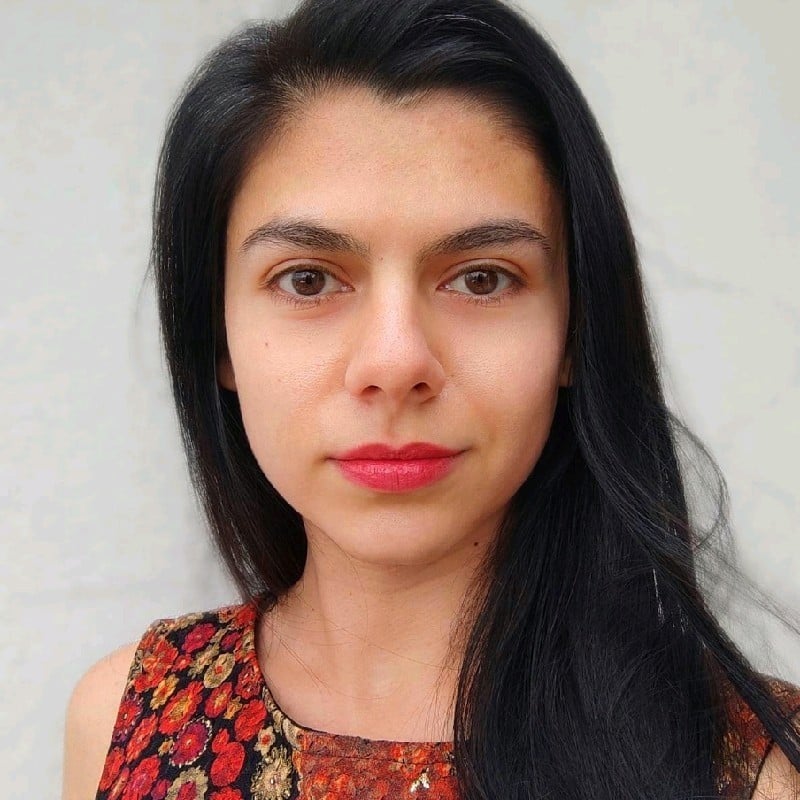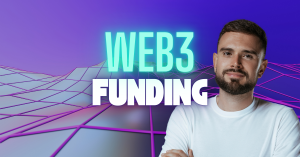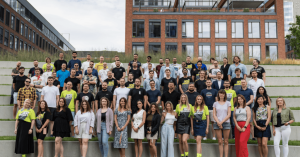This article has been updated on 1.02.2023.
The air is so cold it feels like small knives cutting through your bones. Your eyes are open but all you see is white. You are standing on the edge of the cliff. A frozen, white plain has spread across as far as your gaze can reach. You can hear the crumbling tower beyond.
You know you’re playing a game, but it feels as real as it gets. This is a journey inside your own imagination. It’s yourself you’re trying to figure out and crack open.
This is the magic of Betwixt: The story of you, a choose-your-adventure that combines story, science, and play into an interactive journey of self-exploration. The aim of the game is to help players gain clarity, resilience, and self-insight through a mix of self-reflection tools taken from positive psychology, cognitive theory, affective science, expressive writing, and a range of therapy styles.
As the co-founder of Betwixt puts it: “Mental wellness shouldn’t be a chore. So, we made it epic.”
Science writer Elitsa Dermendzhiyska co-created Betwixt in 2019. Hazel Gale, a professional ex-kickboxer, bestselling author, and cognitive hypnotherapist with over 10 years of experience, joined the endeavor. Since then the game has spun a community of over 3, 000 followers on Twitter and more than 6,000 beta testers have given it a ride. In addition, the project won a place at the Global Human-Computer Interaction Conference CHI in May 2021.
When the two co-founders met, Elitsa was exploring play and storytelling, part of game design, as coping mechanisms. Curious why traditional mental health apps couldn’t do the trick, she looked into the idea of creating a more involving mental health game that would stimulate the player’s imagination and creativity. Hazel, a keen gamer, was already using metaphor, visualization, and storytelling in her practice as a therapist. They were a natural fit and the idea just clicked for both of them. Together they did the mock-up of the app not knowing if the game would find an audience. The project received external consultation from psychiatrists Dr Sachin Shah and Dr Stephen Kaar from Gaming the Mind, a blog on gaming and mental health, part of the website of the Royal College of Psychiatrists; as well as from Games for Emotional and Mental Health Lab in the Netherlands.
The company is further partnering with a neuroscience lab and research teams in the UK to continue building the evidence base behind its approach.
$1M in funding: A community-backed investment
Earlier this year, the potential of the project was recognized by the community of Gala Games, a decentralized gaming platform that integrates blockchain technology. After a 76% community vote in favor, Betwixt received $1M in funding from the Gala Games Conservatorship fund. The investment will help the project in the quest of reaching millions of people globally to help them connect with their inner selves and understand better the struggles and challenges they are going through.
The final decision for the investment was taken by the Gala Games’ community, but the initial proposal reveals a lot about Jason “BitBender” Brink’s, Chief Marketing Officer at Gala Games, motives to put it on the table:
“Betwixt is all about using gaming to create positive change…and it isn’t about making a ton of money for VC investors. ……. I thought that the Gala Games Node Network could potentially unlock funding for Betwixt, unblocking their development, making a positive impact, and helping advance game-based therapy for future generations,” Bit Bender said when introducing Betwixt for the first time to the Founders Nodes.

“We’re on a mission to reinvent wellbeing for the modern world and bring the magic of self-awareness to millions of people worldwide. We believe that to thrive in a post-COVID era, the world needs resiliency tools that engage and excite people, so they can compete with the million distractions and temptations of our online lives in a journey towards creating a great product and scaling its impact globally. What shape and form this journey will take – no one can say. One thing is for sure: we’re thinking not about the next two months but about the next two, five, or even ten years. We’re here to build something that lasts and we’re thrilled to share this adventure with you.” says Elitsa Dermendzhiyska, co-founder of Betwixt.
The Recursive spoke to Elitsa Dermendzhiyska to get more insights into what it’s like to work at the intersection of science, storytelling, and blockchain technology. Elitsa struck us as a dynamic and self-motivated entrepreneur who dares to give life to her own ideas. She founded her first tech business at the age of 25 and after leaving the company, she set out on a new journey to explore mental health and to find out what gave people a deeper sense of meaning. Over the next two years, Elitsa became a science writer in psychology with articles published in Aeon and the Guardian. She also worked with 13 acclaimed British authors, thinkers, comedians, and entrepreneurs and published the book “What Doesn’t Kill You: 15 Stories of Survival“.
The Recursive: Why did you decide to develop Betwixt as an app and not a platform?
Elitsa Dermendzhiyska: It felt like the most native way to create the kind of deeply personal experience we wanted to develop.
What inspired you to create Betwixt? How did you decide to quit your business in tech and become a science writer in mental health?
In 2016, I left tech to study mental health. I was burning out, but more than that, I wondered if the long days, the lousy sleep, and constant anxieties were actually worth it. Because my involvement in tech had given me no sense of deeper meaning, I decided to go back to an old interest of mine – human psychology. With time on my hands, I took to learning as much as I possibly could about the reasons people struggle and how they bounce back. I spent many months talking to various professionals, creatives, and entrepreneurs, I interviewed health experts and psychotherapists and pored over any research I could get my hands on. What surprised me was that a lot of the people I interviewed were using video games as a coping mechanism – something I initially dismissed as dysfunctional. However, the more I delved into the research, the more I realized that play and storytelling can be incredibly powerful tools for self-awareness and personal change.
What is the connection between mental health and gamification?
I don’t use the term “gamification”. It encompasses the superficial elements of games (avatars, badges, achievements) and it doesn’t work in the context of mental health. What does work is the combination of play and story that you find in real games. Having observed our users engage with Betwixt and talking to them about their experiences, we’ve learned three key lessons about the importance of story and imagination in achieving better well-being and improving your ability to cope with the curveballs life throws at you:
#1 A safe space to explore your mind
We, humans, are driven to avoid pain. This means it can be daunting to engage with negative thoughts or destructive feelings. Any creative activity that allows you to approach your problems in a less direct way can be extremely powerful.
#2 Shift away from the victim mindset
Imagination allows you to see yourself as the protagonist of an epic story and reframe your problems as challenges that are part and parcel of the hero’s journey.
#3 Tap into your subconscious
If information were the answer to our problems, there wouldn’t be a global mental health crisis. Many times, we know what we need to do but there’s something that sabotages our best intentions and it works below the surface. Our subconscious, which guides most of what we do, is hard to reason with, but it responds to story, metaphor and creativity. That’s why fiction can be powerful in therapeutic change, by re-shaping the underlying narratives that direct our actions just outside of conscious awareness.
What is the business model of Betwixt in a nutshell?
We’d love to be able to offer Betwixt for free because we believe that everyone deserves to live an epic story and yet we see that basic well-being is simply out of reach for so many people. We plan to balance accessibility with being sustainable as a business through premium offerings to both consumers and companies looking to support their employees’ mental health and well-being.
What is the unique selling proposition? How do storytelling and play improve your business model and what is the added value for the user?
We started Betwixt three years ago because we found that many people were not engaging with the existing well-being apps. There are a number of reasons. A big one is that everyone is unique, and everyone has different needs, whereas well-being apps tend to be one-size-fits-all. They’re also quite passive and often feel like yet another obligation to put on your schedule.
By contrast, we find that our users come to Betwixt for the promise of entertainment, an escape, and the story keeps them coming back again and again. As one player said, it’s like having therapy without realizing that this is what’s happening.
Something else we’ve found in our user research is this amazing mindset shift that happens when you wrap a story around a sensitive topic like mental health. This creates a playful, safe space that empowers people to open up; it completely flips the script on mental health from something stigmatized and vulnerable to something exciting and inspiring.








